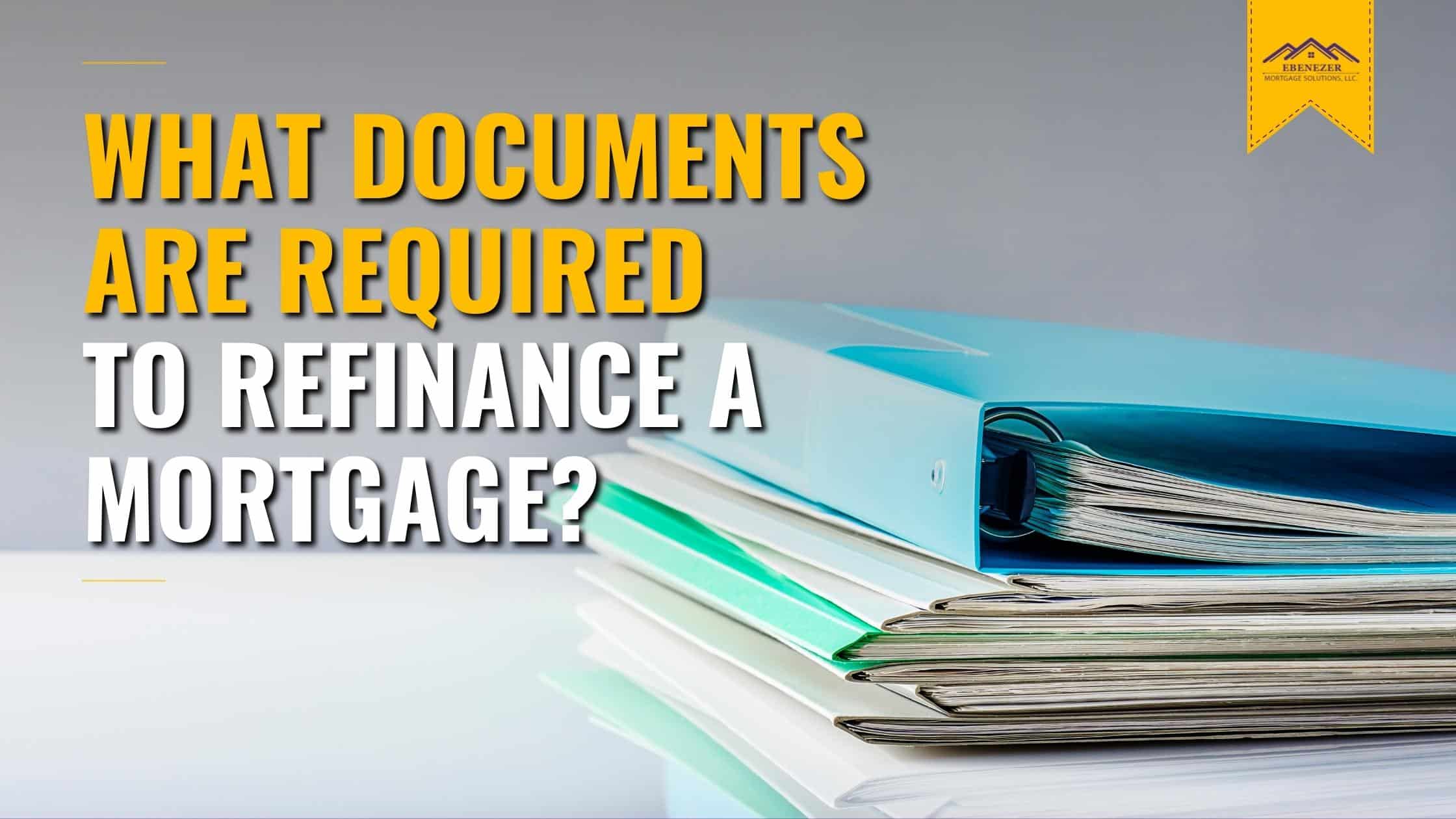Your Most Trusted Partner in Home Purchase Loans & Refinance Loans
Open Hours: Mon. - Fri., 9:00 a.m. - 6:00 p.m.

Refinancing your mortgage means paying off or renegotiating your current mortgage and replacing it with a new one. Often, this new mortgage has a better loan term and rate, which can then lead to a lower monthly mortgage payment and more savings.
However, just like with a regular home loan, the mortgage refinance process can be lengthy. And taking your time to provide your mortgage lender with the necessary documentation can increase the timeline even further. So if you're planning to have a streamlined mortgage refinance, then you need to be prepared.
What documents are required to refinance a mortgage? To help you out, this blog will go over some of the documents you'll need for a smoother refinance process.
Lenders will want assurance that you can make your monthly mortgage payments, manage your existing debts, and still have enough cash left for your day-to-day living expenses. Your income documents will verify how much income you get and the stability of your earnings.
Salaried employees typically receive tax forms and pay stubs from their employer. These documents can serve as proof of regular income. If you don't have a copy of these on file, you can contact your human resources department. Here is a list of documents you need for a refinance as a salaried employee:
Self-employed workers can include business owners, freelancers, and independent contractors. And since they don't have employers who will provide them with pay stubs or W-2 forms, they need to show other types of documents to verify their income. Here are some of the documents lenders might require from self-employed borrowers:
Mortgage lenders would require your insurance information to verify the legality of your homeownership. This information will also show whether you've maintained the coverage on your home.
Your title insurance policy is meant to protect you from losses that might occur if ever the title to your property is not free or clear of defects. This document, along with a copy of the deed with the names of all legal owners, will be one of your refinance requirements. Moreover, your title insurance can also help verify your property taxes.
You can find your title insurance policy in your closing documents. If you've lost them, you can ask the title company or your previous lender if they have a copy on file.
Your homeowner's insurance policy is used to help you rebuild your property in case of destruction or damage. And just like homeowners insurance is required when you're obtaining a loan, it will also be necessary when you're applying for a refinance.
To ensure that the coverage on your home is current, your mortgage lender will ask for a copy of your homeowner's insurance. The lender might also order a home appraisal. This is to verify that your homeowner's insurance policy coverage is still sufficient. And if it's not enough, you will have to work with your insurance company to update the coverage limits.
Your credit score is probably the most important three-digit number in your adult life. It will be used to determine how well you handle your debts. Your lender will also ask your permission to pull your credit report so they can check your debt balances and see if there are any negative credit events. They might also ask for additional documentation to help with the credit checking:

Your lender would want to determine if you can afford a new home loan. To do this, they would have to calculate your debt-to-income ratio by checking all your existing debts and expenses. These are some of the documents lenders will require to verify your financial obligations:
Your lender would want to verify whether you have enough cash to cover the closing costs on your new mortgage, as well as cash reserves that can cover at least 2 to 12 months' worth of monthly payments in case of an emergency. To do this, you'll have to provide recent statements from:
You might also need to prepare additional documents depending on your lender. For example, if there's a recent large deposit made on your account, you'll have to explain where that came from. Here are other examples of additional documentation that might be asked of you:
Preparing all these documents you need for a refinance beforehand might make the process smoother. However, if you really want to have a stress-free refi, then you'll need to work with a mortgage broker.
At Ebenezer Mortgage Solutions, we'll submit your application to multiple lenders so you don't have to. This will get you access to expert-recommended refinance options that will suit your financial situation.
If you're ready to refinance your mortgage, let us know by calling (813) 284 - 4027 so we can immediately start working on it.
